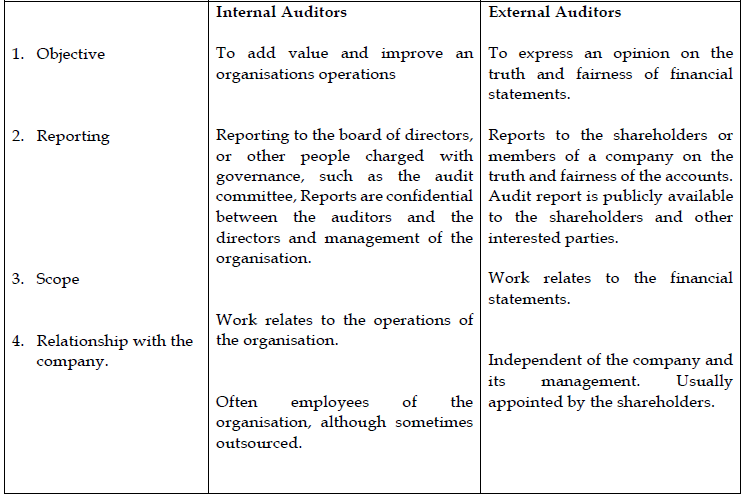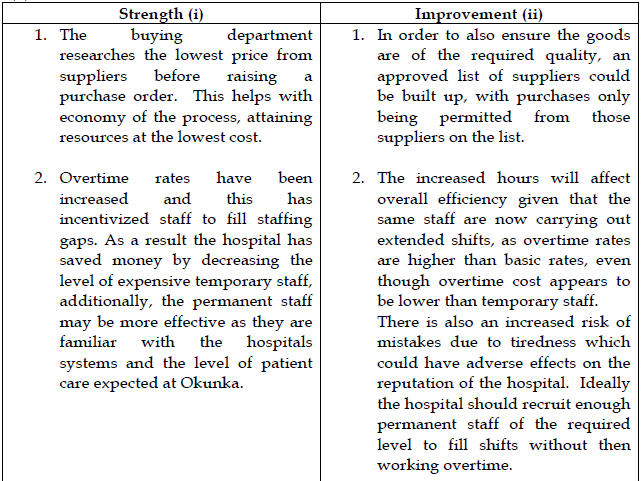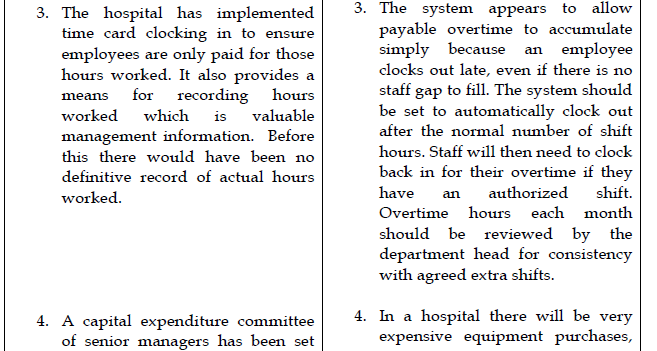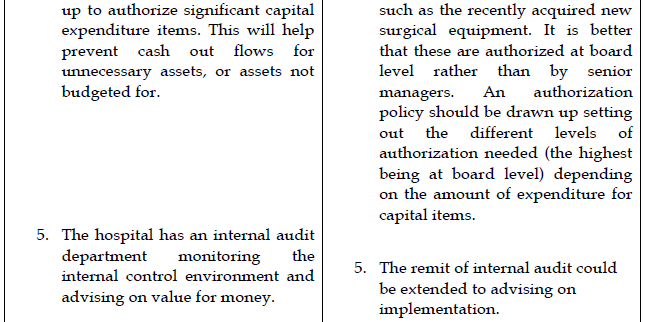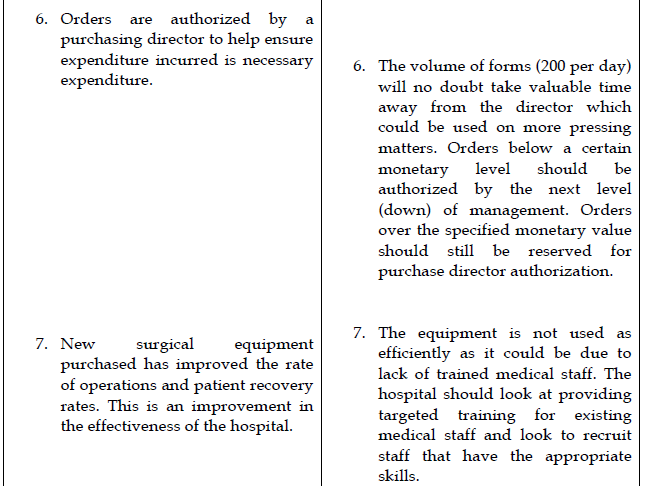May 2021 Q4 c.
Internal audit is one of the supporting functions within an organisation. This function is set up reluctantly in many entities. It is most of the time denied the recognition and resources it requires to operate. Internal Auditors report administratively to the CEO’s of organisations even though they are required to functionally report to the Audit Committees of their respective organisations on professional issues.
Required:
Explain FIVE (5) limitations of the Internal Audit Unit and discuss steps that the Internal Audit Unit can initiate to remain independent even though they are employees of a company. (10 marks)
View Solution
Limitations of the Internal Audit
- Internal auditors may be employees of the company they are reporting on and therefore may not wish to raise issues if they lose their jobs.
- In smaller entities, internal audit may part of the finance function. Therefore, they will have to report upon the effectiveness of financial systems they form part of and may be reluctant to say that the department has deficiencies.
- If the internal audit staff has worked in the company for a long time, they may be a familiarity threat as they will be auditing the work of long-standing friends and colleagues.
- Most internal audits are denied the needed resources to operate
- Most internal audit units are not staffed with qualified personnel
Independence could be achieved through:
- Separate reporting channels of the internal audit and financial function
- Independent review of the internal audit function
- Outsource the internal audit function to the third party
- Liaise with management for resources to operate
- Ensure qualified staff are employed to man the function
(5 points @ 2 marks each =10 marks)

